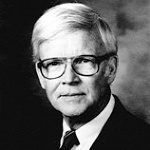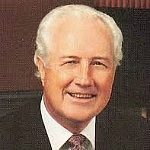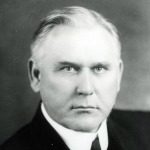Quotes about God-Will_of-Discovering
We are trying not so much to make God listen to us as to make ourselves listen to Him; we are trying not to persuade God to do what we want, but to find out what he wants us to do. It so often happens that in prayer we are really saying, “Thy will be changed,” when we ought to be saying, “Thy will be done.” The first object of prayer is not so much to speak to God as to listen to Him.
I can say from experience that 95% of knowing the will of God consists in being prepared to do it before you know what it is.
But what about issues that are not specifically mentioned in the Scriptures – how do we determine God’s will and develop conviction in those areas?…
1. “Everything is permissible for me – but not everything is beneficial” (1 Corinthians 6:12). Question 1: Is it helpful – physically, spiritually, and mentally?
2. “Everything is permissible for me’ – but I will not be mastered by anything” (1 Corinthians 6:12). Question 2: Does it bring me under its power?
3. “Therefore, if what I eat causes my brother to fall into sin, I will never eat meat again, so that I will not cause him to fall” (1 Corinthians 8:13). Question 3: Does it hurt others?
4. “So whether you eat or drink or whatever you do, do it all for the glory of God” (1 Corinthians 10:31). Question 4: Does it glorify God?
Copied from The Pursuit of Holiness by Jerry Bridges, © 1996, p. 88. Used by permission of NavPress – www.navpress.com. All rights reserved. Get this book!
We do have a responsibility to make wise decisions or to discover the will of God, whichever term we may prefer to use. But God’s plan for us is not contingent upon our decisions. God’s plan is not contingent at all. God’s plan is sovereign. It includes our foolish decisions as well as our wise ones.
Trusting God, 1988, p. 170. Used by permission of NavPress – www.navpress.com. All rights reserved. Get this book!
Blessed are the single-hearted, for they shall enjoy much peace… If you refuse to be hurried and pressed, if you stay your soul on God, nothing can keep you from that clearness of spirit which is life and peace. In that stillness you know what His will is.
God is less interested in answering our questions than in other things: securing our allegiance, establishing our faith, nurturing a desire for holiness.
To be so much in contact with God that you never need to ask Him to show you His will, is to be nearing the final stage of your discipline in the life of faith. When you are rightly related to God, it is a life of freedom and liberty and delight, you are God’s will, and all your commonsense decisions are His will for you unless He checks. You decide things in perfect delightful friendship with God, knowing that if your decisions are wrong He will always check; when He checks, stop at once.
Yahweh’s will must be achieved in Yahweh’s way; the end that God has ordained must be reached by the means that God approves.
1 Samuel, Focus, 1988, p. 248. Used by Permission. Get this book!
The further you go in obedience, the more you see of God’s plan. God doesn’t often tell us the end from the beginning. He prefers to lead us on step-by-step in dependence upon Him.
Living in the Gap Between Promise and Reality, P&R Publishing, 1999, p. 55-56. Used by Permission.
Thoughtful, biblically-induced attraction toward certain holy desires, with patient waiting before God in prayer, is no less the work of the Spirit than the most dramatic “immediate impulse” others may claim. This is the normal biblical pathway to wisdom. The man who makes the wise decision, yet always remains open to God’s further intervention in whatever way God pleases, is demonstrating normative spiritual guidance.
Led by the Spirit, Joshua Press, 1999, p. 43, http://www.solascriptura.ca/shop/store.php?crn=215.
Except in rare cases, the experience of direct interventions of God’s guidance in the lives of various Bible characters was not indicative of normal discipleship and they are likely recorded precisely because of their unusual nature. Due to the compressed makeup of the Bible it appears to its reader that God is speaking directly more often than He actually does.
Led by the Spirit, Joshua Press, 1999, p. 26, http://www.solascriptura.ca/shop/store.php?crn=215.
Reason and Scripture are systemic and essential to sound decision-making… We are to actually think through the given situation, wrestle with the options, weigh them, sift them, ponder the implications and consequences, and we are to do all of this in the light of truth as we find it in the Scriptures interpreted in context. And we presume, underneath all of this, God is working.
Led by the Spirit, Joshua Press, 1999, p. 39, http://www.solascriptura.ca/shop/store.php?crn=215.
It was George Muller who once said that nine-tenths of knowing God’s will has to do with “having no will of our own.” A concerted effort to rid ourselves of selfish desires as they relate to our decision is foundational.
Led by the Spirit, Joshua Press, 1999, p. 42, http://www.solascriptura.ca/shop/store.php?crn=215.
Helpful [items] to consider when seeking God’s will in matter of guidance:
1. Begin by prayer for wisdom. Do not doubt that God has a wise course of action for you and will make it known.
2. Intentionally seek God’s face even more than His answers. “In Your light we see light” (Psalm 36:9).
3. Seek to be willing to take any course that God would have for you. Be thorough in your work on yourself. Often people miss God’s will because they are not fully willing to be submissive to God whatever He leads them to do.
4. Carefully seek to discover if there are any directives already given in Scripture which could guide you. Are there illustrations, commands, principles, which speak to this issue? Meditate on these and see if Scripture promotes or rules out any action you are considering. Try to find not only what God permits and does not permit, but what God likes, what is dear to His heart. Go directly to any passage which deals with the general subject to see if there is help to be found which you had not discovered before. Always read the Bible in context.
5. List each possible course of action, and in a prayerful frame of mind write out what are the pros and cons of each option. Put these options before the lens of Scripture one by one to see if God has spoken on these issues in some way. You will find more being said about most issues than you might first believe.
6. When helpful, seek objective counsel from godly and wise men or women you can trust.
7. Finally, examine your will again. If you are willing to do anything God might direct and that is certain in your mind, then you are free to pursue what God may be placing in your thinking related to the issue. Is there a long-term righteous desire in you?
8. Now, act in faith. If God in His perfect cadence intervenes so as to cause everything to turn again, this is His business. For your part, you are required to take action along the lines of the wisest choice you can biblically make. Rejoice and do God’s will!
Led by the Spirit, Joshua Press, 1999, p. 45-46, http://www.solascriptura.ca/shop/store.php?crn=215.
We discover the will of God by a sensitive application of Scripture to our own lives.
Discovering God’s Will, Banner of Truth Magazine, Issue 219, December 1981, by permission Banner of Truth, Carlisle PA.
Paul’s principles (in 1 Corinthians) are of great practical usefulness to us in discerning what the will of the Lord is in our lives: Is it lawful (6:9-11)? Is it beneficial (6:12a)? Is it enslaving (6:12b)? Is it consistent with the Lordship of Christ (6:19-20; 7:23)? Is it beneficial to others (10:33)? Is it consistent with the example of Christ and the apostles (11:1)? Is it for the glory of God (10:31)?
Discovering God’s Will, Banner of Truth Magazine, Issue 219, December 1981, by permission Banner of Truth, Carlisle PA.
We learn about guidance primarily by learning about the Guide. It is the knowledge of God and His ways with men which ultimately gives us stability in doing His will.
Discovering God’s Will, By Permission of the Banner of Truth Trust, Carlisle, PA. 1991, p. 12.
When we have differences of opinion about a course of action, the decisive factor is to be “what tends most to the glory of God?” (1 Corinthians 10:31).
Discovering God’s Will, By Permission of the Banner of Truth Trust, Carlisle, PA. 1991, p. 20.
The way in which God leads us is the way of following Christ in bearing the cross. Any “guidance” which contradicts this principle will lack the familiar autograph of Christ. Any “voice” which beckons us to forsake this pathway we will silence. For we will have come to recognize the accents of our Master. There is no voice like the voice of the One who has been crucified.
Discovering God’s Will, By Permission of the Banner of Truth Trust, Carlisle, PA. 1991, p. 23-24.
We recognize that God has spoken in various ways. Now He has spoken finally in His Son Jesus (Hebrews 1:1-2). The implication, which the book of Hebrews works out at considerable length, is that we no longer live in the age in which God reveals His will to us in these diverse ways. Now He has perfectly revealed His will to us in Jesus, and we will find His guidance enshrined in the pages of our only witness to Christ – the Holy Scriptures.
Discovering God’s Will, By Permission of the Banner of Truth Trust, Carlisle, PA. 1991, p. 28.
God’s guidance will require patience on our part. His leading is not usually a direct assurance, a revelation, but His sovereign controlling of the circumstances of our lives, with the Word of God as our rule. It is therefore, inevitable that the unfolding of His purposes will take time – sometimes a very long time.
Discovering God’s Will, By Permission of the Banner of Truth Trust, Carlisle, PA. 1991, p. 33-34.
Knowing God’s will is a matter of judgment. That is why it is not an unspiritual practice, when faced with alternative ways of proceeding, to set down the pros and cons of the situation; the reasons, possibilities, problems of one decision in contrast with another. When we begin to evaluate these against a background of a general knowledge of the Lord’s will in Scripture, we often find our minds drawn in a particular direction. As time passes we begin to feel the weight of one course of action rather than another.
Discovering God’s Will, By Permission of the Banner of Truth Trust, Carlisle, PA. 1991, p. 35-36.
Sometimes we say that the principle by which any action may be judged is: Can I take Christ there? There is truth in that. But it is not the whole truth. For, Paul emphasizes (1 Corinthians 6:15), we have no choice in the matter. We do take Christ there. As those who are united to Him we cannot leave Him behind. So the real question is: Can I take Christ there and look Him in the face without shame? Is this course of action, this decision I am taking, totally consistent with my personal confession that “Jesus Christ is my Lord”?
Discovering God’s Will, By Permission of the Banner of Truth Trust, Carlisle, PA. 1991, p. 70.
The manner of God’s revealing His will to men is (also) very different. Some have had special, personal, and peculiar discoveries of it made to them. So had Samuel about the choice of the person whom he should anoint king… But now, all are tied up to the ordinary standing rule of the written Word, and must not expect any such extraordinary revelations from God. The way we now have to know the will of God concerning us in difficult cases, is to search and study the Scriptures, and where we find no particular rule to guide us in this or that particular case, there we are to apply general rules.
A Puritan Golden Treasury, compiled by I.D.E. Thomas, by permission of Banner of Truth, Carlisle, PA. 2000, p. 132.
In order to discern the will of God for their lives believers cannot just depend on their conscience. Conscience is indeed very important, but it must constantly be sent back to the school of Scripture to receive instruction from the Holy Spirit. It is in this manner that believers become and remain aware of God’s will. Which will? Decretive (secret) or Preceptive (revealed)? The latter, of course… In this way the will of God will become an increasingly well-established or proven component of the consciousness and lives of God’s children. The more they live in accordance with that will and approve of it, the more also, through this experience, will they learn to know that will, and rejoice in that knowledge. They will exclaim, “Thy will is our delight.”
We do know that Jesus’ prayerful waiting for God’s instructions freed Him from the tyranny of the urgent. It gave Him a sense of direction, a steady pace, and enabled Him to do every task God assigned. And on the last night He could say, “I have finished the work which Thou gavest me to do.”
To say that God is faithful or consistent is not to imply, however, that He is predictable. Much bitterness toward God results from a misconception of this. Too often we speculate and try to guess the actions of God and, therefore, develop expectations. Through our limited and often perverted reasoning, we determine the “best” for our lives and then consider God’s only reasonable response to be one of quick and complete fulfillment.
Having faith is trusting in the revelation of God. In other words, if I know that something is consistent with God’s mind, if I know it is consistent with His will, if I know it is consistent with His purpose, if I know it is consistent with His desire, then I believe that and I can see that come to pass. It is faith in God as God is and God as God has revealed Himself to be. And how is that appropriated?… by prayer…. As we ask consistent with God’s revelation of Himself, consistent with the name of Jesus Christ and His purpose, consistent in an unselfish way to the glory of God, we can know we’ll receive it.
The Way of the Fig Tree: Promise Without Performance. The article originally appeared (www.gty.org/Resources/Sermons/2352) at www.gty.org. © 1969-2008. Grace to You. All rights reserved. Used by permission.
I need not despair because the living God is my partner. I do not have sufficient wisdom to meet these difficulties, but He is able to direct me. I can pour out my heart to God and ask Him to guide and direct me and to supply me with wisdom. Then I have to believe that He will do so. I can go with good courage to my business and expect help from Him in the next difficulty that may come before me.
The Autobiography of George Muller, 1984, p. 152-153. All quotations taken from books published by Whitaker House are used with permission of the publisher. Whitaker House books are available at Christian bookstores everywhere.
God guides, not by a visible sign, but by swaying the judgment. To wait before Him, weighing candidly in the scales every consideration for or against a proposed course, and in readiness to see which way the preponderance lies, is a frame of mind and heart in which one is fitted to be guided; and God touches the scales and makes the balance to sway as He will. But our hands must be off the scales, otherwise we need expect no interposition of His in our favor.
Six Steps to Knowing God’s Will:
1. I seek at the beginning to get my heart into such a state that it has no will of its own in regard to a given matter. Nine-tenths of the trouble with people is just here. Nine-tenths of the difficulties are overcome when our hearts are ready to do the Lord’s will, whatever it may be. When one is truly in this state, it is usually but a little way to the knowledge of what His will is.
2. Having done this, I do not leave the result to feeling or simple impression. If I do so, I make myself liable to great delusions.
3. I see the will of the Spirit of God through, or in connection with, the Word of God. The Spirit and the Word must be combined. If I look to the Spirit alone without the Word, I lay myself open to great delusions also. If the Holy Spirit guides us at all, He will do so according to the Scriptures and never contrary to them.
4. Next I take into account providential circumstances. These often plainly indicate God’s will in connection with His Word and Spirit.
5. I ask God in prayer to reveal His will to me aright.
6. Thus, through prayer to God, the study of His Word, and reflection, I come to a deliberate judgment according to the best of my ability and knowledge; and if my mind is thus at peace, and continues so after two or three more petitions, I proceed accordingly. In trivial matters, and in transactions involving more important issues, I have found this method always effective.
But how then may the Lord’s guidance be expected?… In general, He guides and directs His people, by affording them, in answer to prayer, the light of His Holy Spirit, which enables them to understand and to love the Scriptures. The Word of God is not to be used as a lottery, nor is it designed to instruct us by shreds and scraps, which, detached from their proper places, have no determinate import; but it is to furnish us with just principles, right apprehensions to regulate our judgments and affections, and thereby influence and direct our conduct.
God’s guidance is more like the marriage guidance, child guidance, or career guidance that is received from counselors than it is like being “talked down” by the airport controller as one flies blind through the clouds. Seeking God’s guidance is not like practicing divination or consulting oracles, astrologers, and clairvoyants for information about the future, but rather is comparable with everyday thinking through of alternative options in given situations to determine the best course open to us. The inward experience of being divinely guided is not ordinarily one of seeing signs or hearing voices, but rather one of being enabled to work out the best thing to do.
Taken from: Hot Tub Religion by J.I. Packer. Copyright © 1987 by Tyndale Publishers, p. 117-118. Used by Permission of Tyndale House Publishers, Inc. All rights reserved.
What is necessary is that we have a renewed mind, that is so shaped and so governed by the revealed will of God in the Bible, that we see and assess all relevant factors with the mind of Christ, and discern what God is calling us to do.
Used by permission. What is the Will of God and How Do We Know It? www.DesiringGod.org.
So we go to Him. We spend time with Him. We sincerely listen to His Word as we walk in obedience to it. As we do these things, God leads and guides us according to His will, and suddenly we realize that the will of God is not a road map just waiting to be unearthed somewhere. Instead, it’s a relationship that God wants us to experience every day.
Taken from Follow Me by David Platt. Copyright © 2013 by David Platt. Used by permission. Website: Radical.net. Page 132.
Peaceful feelings can be deceptive. Besides, having peace is never mentioned in the Bible as a way of determining God’s will. For that, we must consult God’s Word – which is clear about this matter.
If you want to know what God wants you to do, the first question is not, “What is God’s will for my life?” as if you have to read God’s mind to know what you ought to do. Really, the first question about God’s will is, “Am I willing to do it?” There is no sense asking for God to reveal His will for your life unless you are committed to doing what He wants done.
Your Will Be Done from When You Pray by Philip Graham Ryken, © 2000, Crossway Books, a division of Good News Publishers, Wheaton Illinois 60187, www.crosswaybooks.org, page 100.
We naively think that the more we grow as Christians, the easier it will be to discern the will of God. But the opposite is often the case. God treats the mature [Christian] as a mature adult, leaving more and more to his or her spiritual discernment and giving fewer bits of tangible guidance than in earlier years.
Spiritual Leadership, Moody Publishers, 1967, p. 121. Get this book!
Does it pass the “Good Test”? Philippians 4:8, “Whatever is true, whatever is honorable, whatever is right, whatever is pure, whatever is lovely, whatever is of good repute, if there is any excellence and if anything worthy of praise, dwell on these things.” So, when you consider your belief about a particular issue is it true, honorable, right, pure, lovely, of good repute, excellent and worthy of praise? Does it pass the “Love Test”? 1 Corinthians 16:14, “Let all that you do be done in love.” 1 Corinthians 13:2, “But do not have love, I am nothing.” As much I would like to do so, probably not a good idea to blast music at my neighbor’s home this morning to get them back for their loud party that when until 3 am. Does it pass the “Conscience Test”? 1 Timothy 1:19, “Keeping faith and a good conscience.” There is so much in Scripture about being careful to never violate our conscience. For example, everyone in the church can talk about watching a certain movie, but if you begin watching it and you begin feeling spiritually uncomfortable, regardless of how innocent the movie many be intended, you must not go against your personal conscience because the more you compromise your personal conscience, the more you will sear the spiritual sensitivity of your heart. Does it pass the “Profitable Test”? This means, just because something is not expressly commanded or forbidden in Scripture, it does not mean that action is necessarily profitable for your walk with Christ. We avoid legalism, but we also avoid the “can’t find anything against it in the Bible” to support all our decisions. 1 Corinthians 6:12, “All things are lawful for me, but not all things are profitable. All things are lawful for me, but I will not be mastered by anything.” And 1 Corinthians 10:23, “All things are lawful, but not all things are profitable. All things are lawful, but not all things edify.”
So, God wants you to have a convictions. God wants you to love Him with all your mind and seek to live for His glory with a clear conscience in all the gray areas of the Christian life that we are dealing with these days. But remember, our convictions must not contradict Scripture and should be in line with general biblical principles. They should be wise and not unnecessarily ruin our relationship with unbelievers. And they should obey God-given authority and not cause another believer to sin.
You ever have a big decision to make? I believe we should follow what Scripture says the Apostles did in Acts chapter 1. First, verse 24, “They prayed” (cf. 1:14). Second, they followed the Scriptures (1:16, 20). Third, they used common sense (1:21-22). And fourth, they drew lots (1:26). That was the last we hear of lots, because in the following chapter the Holy Spirit will arrive. In the place of lots, we now trust the Holy Spirit to guide our thinking, put good desires on our heart and led us in peace.
Hang this question up in your homes – “What would Jesus do?” and then think of another – “How would Jesus do it?” For what Jesus would do, and how He would do it, may always stand as the best guide to us.
Often guidance in the will of God will come to us in the normal circumstances of life, through open and closed doors. But be careful not to give this area more consideration than it deserves. Satan can also open and shut doors of opportunity. Gather all the facts, and prayerfully seek the mind of God.
The true Church has never sounded out public expectations before launching her mission. Her leaders heard from God, they knew their Lord’s will and did it. Their people followed them- sometimes to triumph, oftener to insults and public persecution – and their sufficient reward was the satisfaction of being right in a wrong world
The man or woman who is wholly or joyously surrendered to Christ can’t make a wrong choice – any choice will be the right one.
To know the will of God is the greatest knowledge! To do the will of God is the greatest achievement!
Start doing something. God won’t steer a parked car.





























